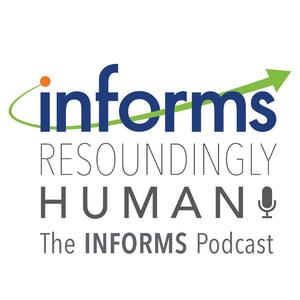Published: June 19, 2020

In today’s world, we are becoming increasingly aware of the prevalence of bias and the significance of its impact, particularly regarding minority groups and at risk and vulnerable members of our community.
In an episode of the podcast released last month, we discussed the presence of bias in rideshares, in particular a study which identified that minorities and supporters of the LGBTQ community are twice as likely to have their rides canceled as Caucasians. In this episode, we will continue to explore additional examples of bias and their impact, as well as the role that operations research and analytics plays in identifying and addressing bias.
In this episode I am joined by Swati Gupta, professor with the H. Milton Stewart School of Industrial and Systems Engineering at Georgia Tech, who has conducted research focusing on bias in job applications and school admissions.
What we often fall back on are our stereotypes or our biases when we are making some decisions that are not even a part of the conversation. And I think they have to be brought forward, we have to create more opportunities for conversations and understanding what is really needed from our mathematics, from our models, from our systems. How can we make them better to support people and give them a more dignified experience?
Interviewed this episode:

Swati Gupta
H. Milton Stewart School of Industrial and Systems Engineering at Georgia Tech
Dr. Swati Gupta is a Fouts Family Early Career Professor and Assistant Professor in the H. Milton Stewart School of Industrial and Systems Engineering at Georgia Tech.
Prior to her arrival at Georgia Tech, she spent two semesters as a Fellow at the Simons Institute, UC Berkeley, participating in programs on Bridging Continuous and Discrete Optimization and Real-time Decision Making. She received her Ph.D. in operations research from the Massachusetts Institute of Technology Operations Research Center and a dual degree (B.Tech and M.Tech) in computer science and engineering from the Indian Institute of Technology, Delhi.
Gupta’s research interests lie primarily in combinatorial, convex, and robust optimization with applications in online learning and data-driven decision-making under partial information. Her work focuses on speeding up fundamental bottlenecks that arise in learning problems due to the combinatorial nature of the decisions, as well as drawing from machine learning to improve traditional optimization methods.
She has worked on providing optimized inventory routing decisions under uncertain demand, and pricing items optimally while incorporating effects of sales and promotions. She has collaborated with industrial research labs such as the IBM Research Lab in Zurich, Switzerland and the Oracle Retail Data Science Group. Gupta is further interested in exploring strategic behavior of customers, fairness and bias in decisions, and unintended consequences of optimization.
Gupta was the Microsoft Research Fellow at Simons Institute in Spring 2018, and she received the prestigious Simons-Berkeley Research Fellowship for the academic year 2017-18. Her collaborative work on systematically evaluating heuristics and understanding which heuristic or algorithm works best on unseen problem instances received a special recognition from the INFORMS Computing Society in their Student Paper Competition in 2016. She was also a finalist for the INFORMS Service Science Student Paper Competition for her work on promotion optimization for retail items. Gupta received the Google Women in Engineering Award in India in 2011.
Episode Transcript
Contact us to request transcript.
Want to learn more? Check out the additional resources and links listed below for more information about what was discussed in the episode.
Fairness in School Admissions: “Impact of Bias on School Admissions and Targeted Interventions”
Reconciling multiple fairness metrics: “Too Many Fairness Metrics: Is there a solution?”
